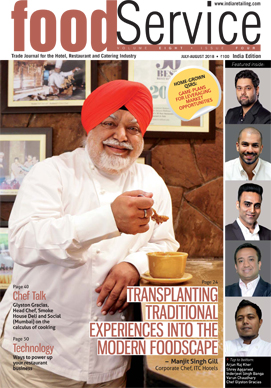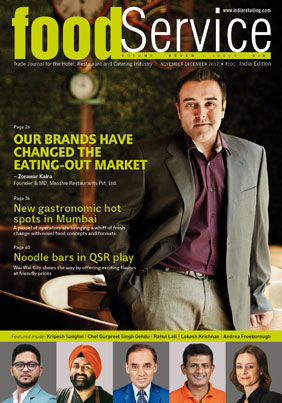Description
At the top multinational offices in the bustling metros of India, bottles of Coke, bags of Doritos, pre-wrapped granola bars, cans of Red Bull tumbling out of vending machines are slowly but gradually disappearing. Companies are going for their own in-house kitchen and a team of chefs to make healthy and wholesome food and beverage for the employees. Along with the daily changing meals in the kitchen, the offices now exclusively offer house-made beverages and snacks—including sodas, cold brew coffee on tap, snack bars made with puffed quinoa—to keep their employees productive and healthy, and minimize waste and environmental impact.
If you work full time, at least one in four meals is likely consumed at the office or during work hours. For example, if you’re a young engineer in Bangalore or Gurgaon, you might even eat all your meals at work! Unfortunately, foods eaten away from home tend to be less healthy than foods prepared at home. And each year we are cooking less and eating more premade convenience meals. This, in part, is contributing to the unsustainable obesity epidemic.
In-house corporate kitchens fulfil a fruitful opportunity to promote health, while also earning a vibrant return on investment.The trend started with tech and Internet companies like Google and Facebook, but has now really caught on. Companies are making a shift from third-party catering services to ambitious, creative in-house food programs that serve up their core values in bite-sized pieces. While most restaurants’ efforts are directed towards mindful farm-totable practices, these companies can be said to touch off the farm-to-cafeteria practice. It is expected that many more companies will take up such programs for providing highquality, portion-controlled food to employees by investing in sustainability-minded corporate kitchens of their own.









